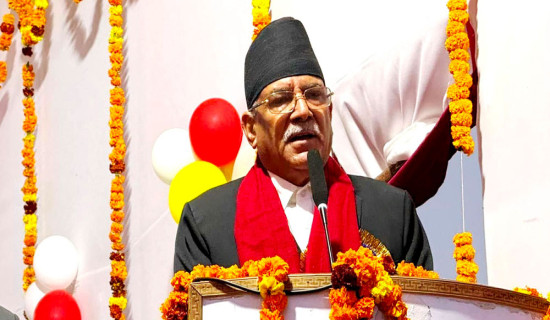- Saturday, 17 January 2026
Investment For Women
Women's participation in economy is one of the cornerstones of sustainable development. So it is imperative to invest for their empowerment right from when they are children. Evidence shows that an extra year of girls' education cuts infant mortality by 5 to 10 per cent. According to the UNICEF, educating girls for six years or more drastically and consistently improves their prenatal care, postnatal care and childbirth survival rates. Educating mothers also greatly cuts the death rate of children under five. Educated girls have higher self-esteem, are more likely to avoid HIV infection, violence and exploitation, and to spread good health and sanitation practices to their families and throughout their communities. And an educated mother is more likely to send her children to school. This importance was highlighted by several lawmakers in Wednesday's session of the House of Representatives (HoR), where deliberations centred on budgetary allocations.
During the meeting, Member of Parliament Ranjita Shrestha advocated for an increase in the budget for the Prime Minister's Daughter Self-Reliance Programme, emphasisig the need for enhanced support for job-oriented education and entrepreneurship aimed at girls. At a time when cost-of-living crisis is dominating the discussions the world over, women's economic participation to augment the family's income comes as a welcome respite. In addition to women, she highlighted the necessity of prioritising livelihoods, health, and education, particularly for marginalised groups such as labourers, farmers, and senior citizens. Similarly, Lawmaker Mahendra Bahadur Shahi called for the implementation of the Daughter Account Programme in Karnali province and stressed the need for the budget to focus on empowering women.
Separately, Minister for Women, Children and Senior Citizens, Bhagwati Chaudhary, upon visiting the Girl Child Leading and Resource Centre, in Devchuli Municipality-10, remarked that the government is committed to investment and policy reforms for better life of teenage girls. Urging all government agencies, the social sector and society and families to invest for girls, she said the government aims to make the daughters financially strong through the Daughter Self-Reliance programme. Initiatives like this go a long way to educate and empower girl child on a par with her male counterpart, promoting gender equality.
An educated girl is highly likely to join the workforce and meaningfully increase the economic output. Women’s economic participation promotes productivity, enterprise development at the micro, small, and medium enterprise levels. It also enhances business management and returns on investment. There is a growing universal recognition that no economy can reach its full potential where women do not have equal opportunities. This explains why even the most conservative societies, where women had historically been assigned traditional roles confined within a house, are increasingly allowing their women members to venture out, work alongside men and contribute to the economy.
Investment in women produces far-reaching results. Because they reinvest a large portion of their income in their families and communities, women play leading roles in creating peaceful and stable societies – necessary prerequisites for economic growth. To make this happen, such investment in woman must begin very early in her life. A World Bank research shows that brain development is the most rapid in the initial years of life, and every additional dollar invested in early childhood development programmes yields a return of between $6 and $17.

















